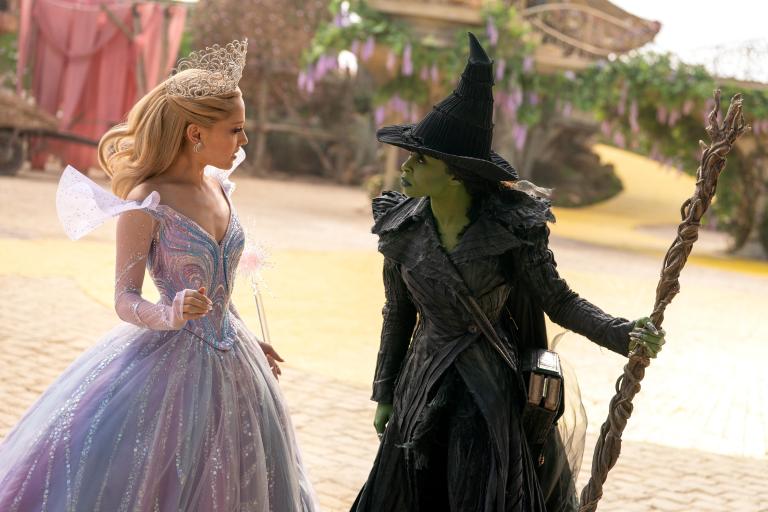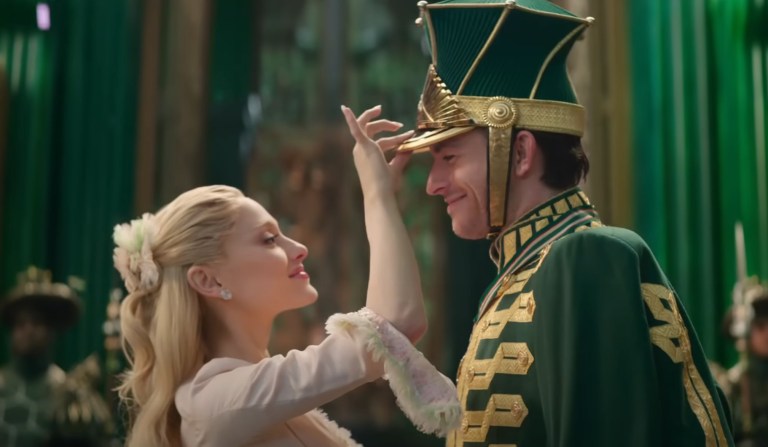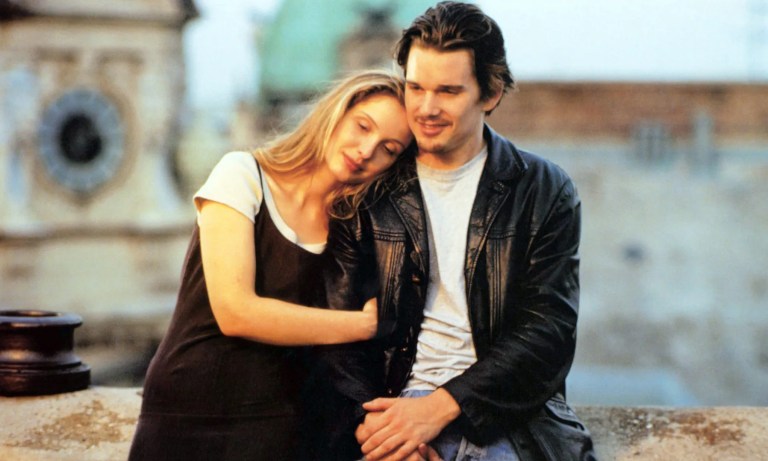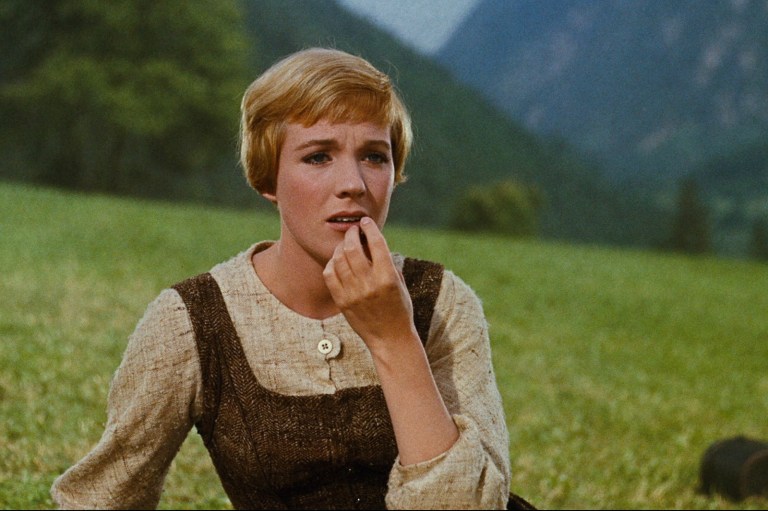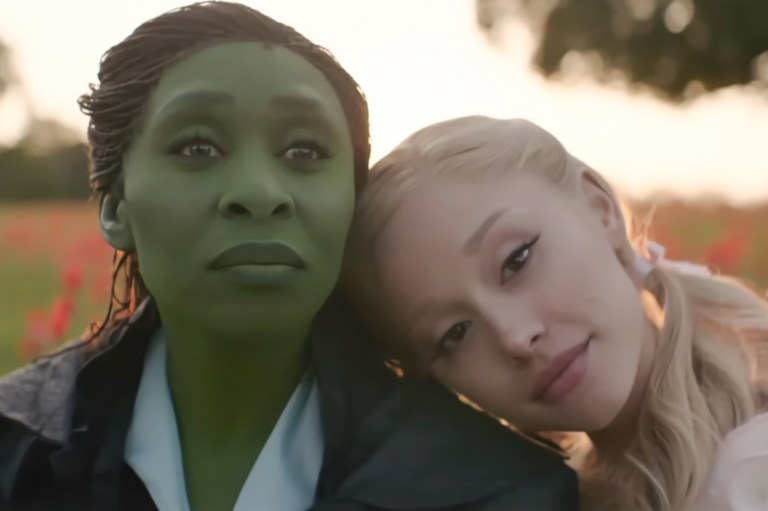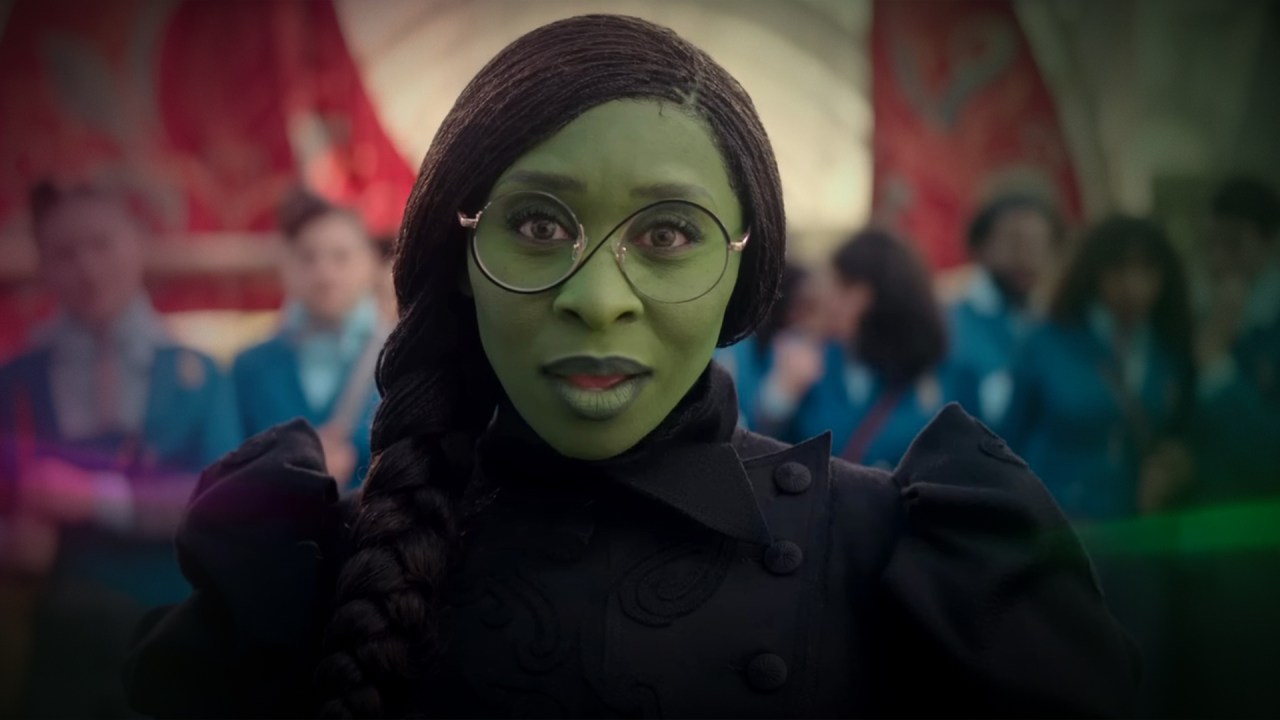
7 Moments the Wicked Film Absolutely Must Keep from the Musical
For those excited about the film adaptation of Wicked, these are what we must see from the original Broadway musical.
By ![]() Jamie Lerner
Jamie Lerner
October may have been the season of the witch, but November is the season of the Wicked Witch of the West–known also as Elphaba. With the release of Wicked in theaters worldwide, moviegoers who may not have had the opportunity or interest to see Wicked live will finally be introduced to one of the world’s best origin stories.
While some people will learn the story of how Elphaba became the Wicked Witch in The Wizard of Oz for the first time, musical theater fans will have a lot of opinions about the film. From the initially controversial casting of Ariana Grande as Galinda to splitting the story into two films, we’re already worried about if the film will honor the original Stephen Schwarz musical. So here are seven moments the Wicked film needs to include from the musical.
Galinda’s Bubble Entrance
In the musical, Galinda first appears by giant bubble, reminiscent of Wicked’s inspiration, The Wizard of Oz. The entrance lays out the storytelling mechanic from Galinda’s perspective as she tells the truth about who Elphaba really was. While her iconic bubble entrance (which may seem more impressive on stage than on screen) doesn’t seem essential to the story of Wicked, it brings the audience in by showing we know the same amount about Elphaba as the citizens of Oz. Thematically, this is significant because it brings in the idea that there is always more beneath the surface of those who may seem “wicked.”
“Something Bad” and Elphaba’s Tutelage Under Dr. Dillamond
While most Wicked fans probably wouldn’t say that “Something Bad” is their favorite song, it underpins the greater societal and political issues happening in Oz. The ominous tone of it along with Elphaba’s passion for animal rights clue us into how Elphaba could meet her downfall. While “something bad” is happening to the animals in Oz, “something bad” will happen to Elphaba for caring so deeply about an unpopular cause amongst those in power.
The Final “Defying Gravity” Riff and Magic
Just before intermission in the musical, Elphaba becomes a version of the “Wicked Witch” we’re familiar with as she takes ahold of a broomstick. Onstage, she seems to truly fly, with her billowing black dress and the Ozians below her, trying to literally and figuratively “bring her down.” Idina Menzel, who originated the role of Elphaba, created the iconic riff in the final moments of the song that any musical theater kid could recall at the drop of a hat. While various actors who have played Elphaba on Broadway and the National Tour have taken creative liberties with the final riff (and we expect Cynthia Erivo to do the same), it needs to induce the same chills we feel while watching and hearing it live.
Mirroring “One Short Day” and “The Merry Ole Land of Oz”
Wicked isn’t just a perennial musical because of its storytelling, character development, catchy expertly sung tunes, choreography, extravagant sets, or even its household named stars. It all ties back to L. Frank Baum’s The Wizard of Oz, which was adapted into the 1939(TK?) film starring Judy Garland as Dorothy, the first film to use color(?). All of Wicked takes place “over the rainbow” and in the song, “One Short Day,” Elphaba and Galinda are introduced to the same Emerald City that Dorothy visits in the initial story.
In Wicked, not only do the music and lyrics of “One Short Day” harken back to Dorothy’s discovery of the Emerald City, but the choreography and reveal of how majestic it is are also nods to the original story. And in both versions, the Wizard is revered above all else, showing how his legacy as a seemingly omniscient leader could lead to the characters’ downfalls.
The Wizard and “A Sentimental Man”
Now that we know Jeff Goldblum is playing the Wizard of Oz in Wicked, we want as much of him on the screen as possible. He has two big numbers: “A Sentimental Man” and “TKTK.” While both songs show that he’s not necessarily as all-loving as initially portrayed, “A Sentimental Man” gives us a bit of his backstory and makes it that much more upsetting when he betrays Elphaba. He sings the song to strike an emotional chord with her only to later turn against her when she speaks up for what she believes in. Not only that, but the song shows his underlying desire to be a father. He eventually learns that he was Elphaba’s father, but didn’t actually give her the unconditional love he vowed to give his hypothetical child.
The Foreshadowing for the Scarecrow, Tinman, and Lion
One of the best things about Wicked is the feeling of satisfaction at the end when the story comes full circle with its origin. We not only learn how Elphaba became the Wicked Witch of the West and how Galinda took the name Galinda instead, but we also learn about how the Scarecrow, Tinman, and Lion came to be. But it’s the foreshadowing that makes their transformation extra satisfying. Long before Fiyero becomes the Scarecrow, he sings, “Life’s more painless when you’re brainless,” hinting at his future lack of brains.
“For Good” and the Final Moments Between Elphaba and Galinda
In Act II, which may not make the cut of the first Wicked film, Elphaba and Galinda’s relationship comes to a head when they sing “For Good.” While the song doesn’t necessarily push the story forward like “Dancing Through Life” and “No One Mourns the Wicked,” it is an embodiment of emotion that can only be shared through song. A lesser film adaptation might cut some of the slow songs, but “For Good” became an anthem of friendship and growth for musical theater tweens around the world. It also includes Elphaba’s lyric, “I’m limited,” which changes from her first big number, “The Wizard and I,” in which she feels “unlimited.” She has the sad realization that there’s not much she can do for Oz based on how she’s perceived. So, she passes the figurative broomstick to Galinda, who, despite pandering to the whims of those in power, is truly a Good Witch.
